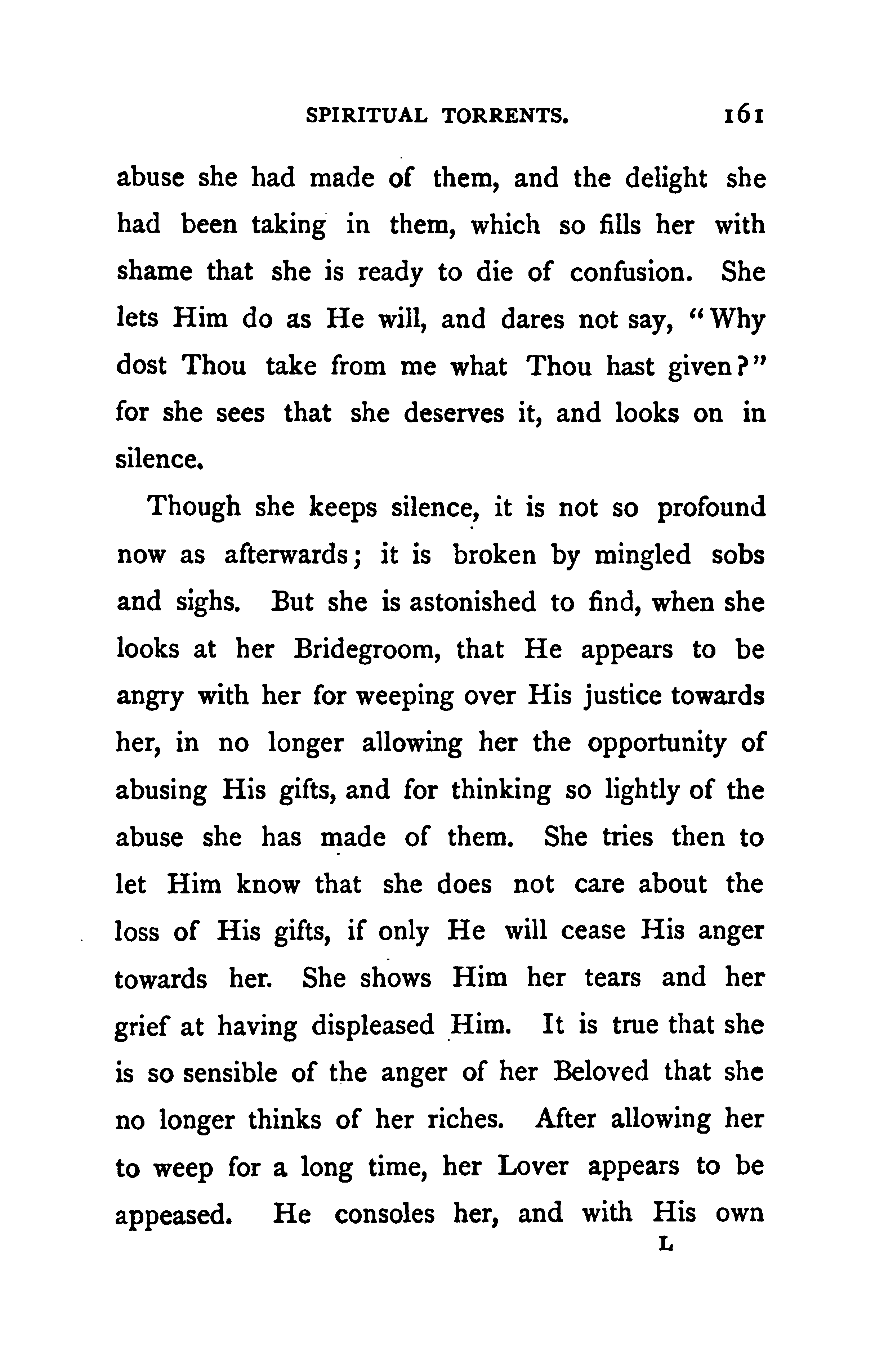abuse
she
had
made
of
them,
and
the
delight
she
had
been
taking
in
them,
which
so
fills
her
with
shame
that
she
is
ready
to
die
of
confusion.
She
lets
Him
do
as
He
will,
and
dares
not
say,
"
Why
dost
Thou
take
from
me
what
Thou
hast
given?"
for
she
sees
that
she
deserves
it,
and
looks
on
in
silence.
Though
she
keeps
silence,
it
is
not
so
profound
now
as
afterwards;
it
is
broken
by
mingled
sobs
and
sighs.
But
she
is
astonished
to
find,
when
she
looks
at
her
Bridegroom,
that
He
appears
to
be
angry
with
her
for
weeping
over
His
justice
towards
her,
in
no
longer
allowing
her
the
opportunity
of
abusing
His
gifts,
and
for
thinking
so
lightly
of
the
abuse
she
has
made
of
them.
She
tries
then
to
let
Him
know
that
she
does
not
care
about
the
loss
of
His
gifts,
if
only
He
will
cease
His
anger
towards
her.
She
shows
Him
her
tears
and
her
grief
at
having
displeased
Him.
It
is
true
that
she
is
so
sensible
of
the
anger
of
her
Beloved
that
she
no
longer
thinks
of
her
riches.
After
allowing
her
to
weep
for
a
long
time,
her
Lover
appears
to
be
appeased.
He
consoles
her,
and
with
His
own
L

